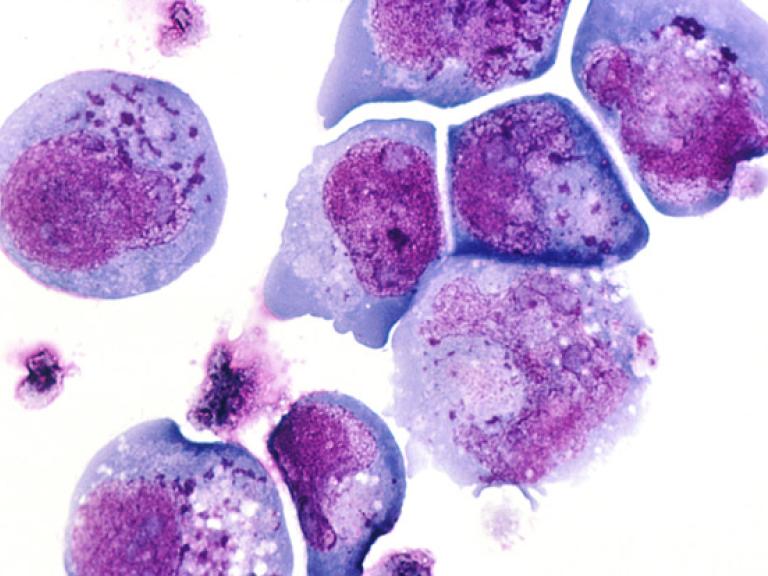Herpes, caused by herpes simplex virus (HSV), has two subtypes—HSV-1 and HSV-2. HSV can be transmitted through sexual contact. In severe cases HSV may lead to life-threatening or long-term complications, typically in the central nervous system. HSV is a leading cause of viral encephalitis—brain inflammation from a viral infection—and infectious blindness worldwide. Neonatal herpes, if left untreated, is fatal in 60% of cases. There are no licensed preventive HSV vaccines, and antivirals can reduce the frequency but cannot clear the infection. In 2023, NIH released the strategic plan for HSV research which will advance the understanding of herpes virology and accelerate development of diagnostics, vaccines, and therapies. NIH anticipates that this plan will serve as a foundation for research, public health and medical communities to collaboratively work to reduce the burden of HSV-1 and HSV-2.

Photomicrograph of cells infected with human herpesvirus 6.
NIH Releases Strategic Plan for Research on Herpes Simplex Virus 1 and 2
In response to the persistent health challenges of herpes simplex virus 1 (HSV-1) and HSV-2, an NIH-wide HSV Working Group developed the plan, informed by feedback from more than 100 representatives of the research and advocacy communities and interested public stakeholders.
The NIH plan will advance understanding of herpes virology and accelerate development of diagnostics, vaccines, and therapies.
News Releases
- NIH Releases Strategic Plan for Research on Herpes Simplex Virus 1 and 2
September 19, 2023
NIAID Now Blog
Related Public Health and Government Information
Read the Genital Herpes Fact Sheet from the Center for Disease Control and Prevention (CDC).

